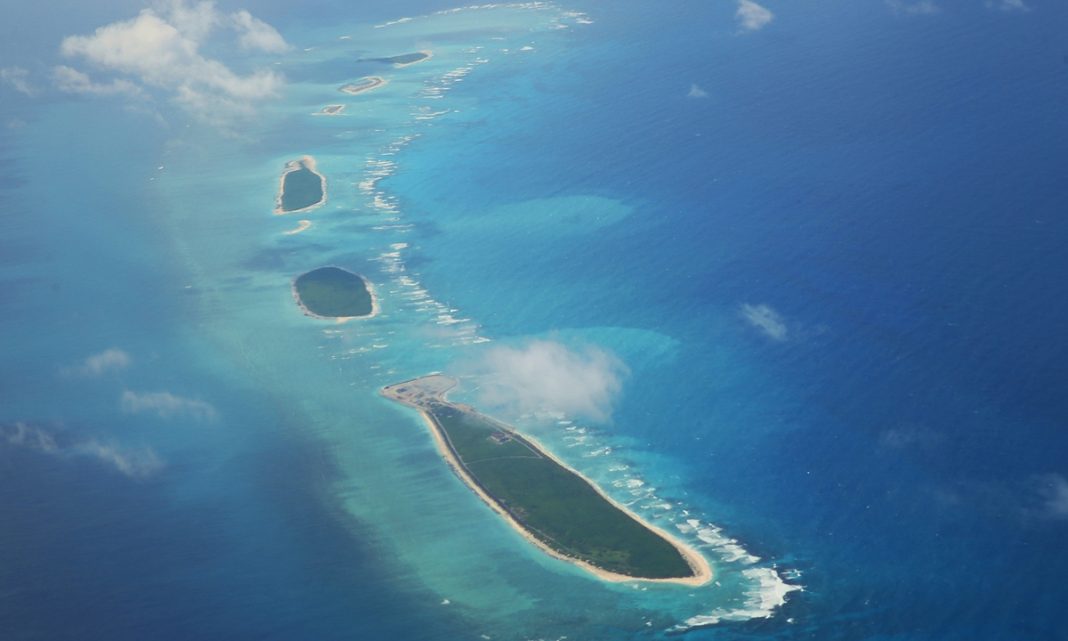BEIJING: A spokesperson for the Chinese Embassy in the Philippines on Thursday responded to media inquiries regarding erroneous remarks about China made during a recent diplomatic meeting between the European Union and the Philippines. The spokesperson stated that China’s sovereignty and rights in the South China Sea have been established through long-standing historical practice and are supported by ample historical and legal grounds, in accordance with international law, including the UN Charter.
This comment was made in response to recent claims made during the visit of Kaja Kallas, High Representative of the European Commission for Foreign Affairs and Security Policy and Vice-President of the Commission, to the Philippines, when the EU and the Philippines claimed to be concerned about the so-called China’s “illegal, coercive, aggressive, and deceptive actions” in the South China Sea, and alleged their commitment to so-called freedom of navigation and overflight, and the so-called 2016 arbitral award.
Chinese observers told the Global Times on Thursday that the EU and the Philippines are using the pretext of “freedom of navigation and overflight” to hype up the so-called award on the South China Sea arbitration and China’s alleged “coercion” in an attempt to fabricate false narratives about China and exert pressure. In contrast, China has consistently upheld its rights in accordance with international law and advocated dialogue and cooperation.
The nature of the South China Sea issue between China and the Philippines is a territorial sovereignty dispute, which falls outside the scope of UNCLOS, the spokesperson said, emphasizing that the so-called award on the South China Sea arbitration is illegal, null and void. China neither accepts nor recognizes it.
At present, the situation in the South China Sea remains generally stable, and freedom of navigation and overflight in the region has never been an issue, said the spokesperson, further noting that tensions in certain areas of the South China Sea were not caused by China, and China firmly opposed any unilateral infringements or provocations and would continue to safeguard its territorial sovereignty and maritime rights and interests in accordance with the law.
The spokesperson noted that the EU was not a party to the South China Sea dispute and had no right to interfere in South China Sea disputes between China and the Philippines, let alone to make unwarranted accusations against China’s legitimate maritime activities. China urged the EU to genuinely respect China’s sovereignty and maritime interests and to stop provoking trouble in the region, said the spokesperson.
Europe’s real strategic focus is not the South China Sea. This move is likely an attempt to use the South China Sea issue as leverage in negotiations with China, aiming to extract more benefits in areas such as the economy. At the same time, it may also be trying to justify its military or political interference in the region by fabricating a false narrative of “China threat”, Chen Xiangmiao, director of the World Navy Research Center at the National Institute for South China Sea Studies, told the Global Times.
The spokesperson also advised the Philippines not to have any illusion about relying on external forces to resolve disputes with China, and instead to return to the right path of managing differences through dialogue and consultation.
Chen noted that the Philippines is attempting to leverage support from certain Western countries, particularly the US, to pressure China and create public momentum. Meanwhile, Philippine President Ferdinand Marcos Jr. is also attempting to bolster his domestic political support through such external backing.
“China has always safeguarded its rights and interests in the South China Sea based on international law and historical practice, and consistently advocates for resolving disputes through cooperation, dialogue, and effective management of differences to safeguard regional peace and stability,” Chen added. –The Daily Mail-Global Times news exchange item
Home CHINA-CPEC-BRI Chinese Embassy in Philippines refutes erroneous EU-Philippines remarks about SCS






